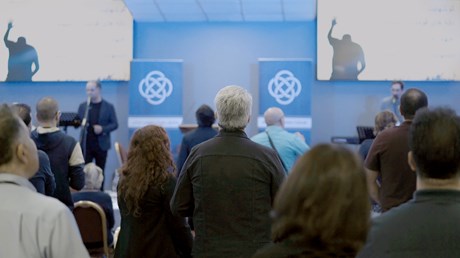Introducing 11 of the dozens of diaspora ministries working to unite one of the world’s fastest-growing gospel movements.

Last week in Tehran, thousands rallied to commemorate the 45th anniversary of the Islamic revolution that established Iran’s modern theocracy. Last October in London, 130 Iranian Christians gathered to worship and pray, and celebrated a quiet decision to establish an evangelical alliance.
Time will tell which gathering was more consequential.
In 1979, one month after the fall of the shah, 98 percent of Iranian citizens voted to approve a constitution installing an Islamic government. Four decades of religious authoritarianism later, an online poll indicated that only 16 percent of the population would vote for it again.
An earlier survey, furthermore, found that only one-third of Iran’s population call themselves Shiite Muslims. More than half identified as either atheist, agnostic, no religion, vaguely spiritual, or Iran’s ancient Zoroastrian faith.
Those responding “Christian” totaled almost a million.
Thousands more Christians have fled persecution, taking refuge among the extensive Iranian diaspora in the West. Some have established ministries to evangelize among them, while others broadcast satellite TV programs, engage in remote discipleship efforts, or preside over a network of underground house churches.
Many multitask, while few collaborate—until now.
At the London gathering, members from over 40 diaspora churches and ministries voted almost unanimously to partner together in an evangelical alliance. Further votes were taken to choose a seven-member steering committee to represent the whole, tasked to take a year to study and recommend best practices, as an additional 60 leaders observed proceedings online.
Momentum had been building for years. Named the Iranian Leaders Forum (ILF), previous ...
from Christianity Today Magazine
Umn ministry


.gif)

.gif)
.gif)
